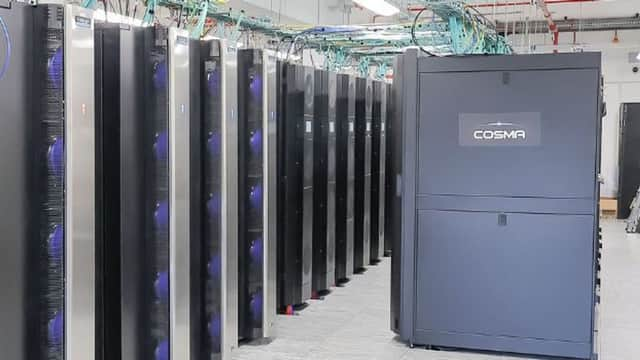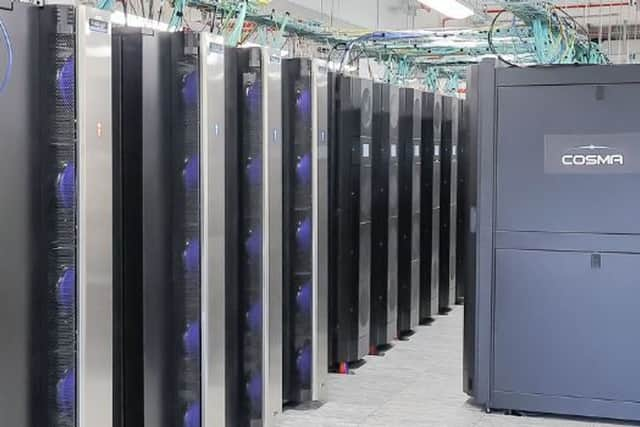Cosmology Machine 8: supercomputer delves into how the universe was created


Astronomers are investigating how the universe evolved from the Big Bang after performing the biggest-ever computer simulations using a £10m supercomputer at Durham University.
Project Flamingo calculated how ordinary matter, dark matter and dark energy evolved according to the law of physics and created virtual galaxies and clusters of clusters of galaxies as the simulations progress. The researchers then hope to compare the virtual universe with images of interstellar space via NASA's James Webb telescope and the European Space Agency's Euclid telescope.


Advertisement
Hide AdAdvertisement
Hide AdThe COSMA 8 supercomputer spent two years running the simulations, which took more than 50 million processor hours. It has the power of 17,000 home PCs and experts had to develop a new code to distribute the massive workload over thousands of computer processors, and the study is published in the journal Monthly Notices of the Royal Astronomical Society.
Physics professor Carlos Frenk, from Durham University, said: "Cosmology is at a crossroads. We have amazing new data from powerful telescopes some of which do not, at first sight, conform to our theoretical expectations.
"Either the standard model of cosmology is flawed or there are subtle biases in the observational data. Our super precise simulations of the universe should be able to tell us the answer."
Previous simulations have focused on cold dark matter, but astronomers now believe ordinary matter and neutrinos should be considered when understanding the universe's evolution.
Advertisement
Hide AdAdvertisement
Hide AdPrincipal investigator Professor Joop Schaye, of Leiden University in the Netherlands said: "Although the dark matter dominates gravity, the contribution of ordinary matter can no longer be neglected since that contribution could be similar to the deviations between the models and the observations."
Comment Guidelines
National World encourages reader discussion on our stories. User feedback, insights and back-and-forth exchanges add a rich layer of context to reporting. Please review our Community Guidelines before commenting.
